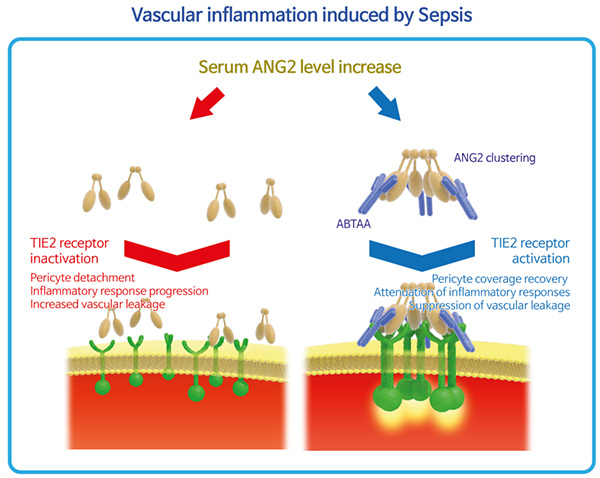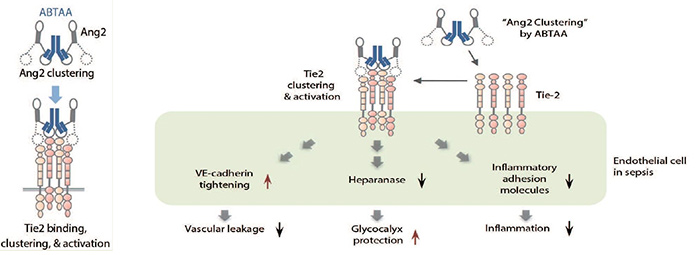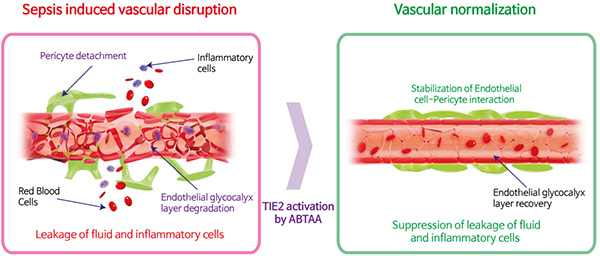주메뉴
- About IBS 연구원소개
-
Research Centers
연구단소개
- Research Outcomes
- Mathematics
- Physics
- Center for Underground Physics
- Center for Theoretical Physics of the Universe(Particle Theory and Cosmology Group)
- Center for Theoretical Physics of the Universe(Cosmology, Gravity and Astroparticle Physics Group)
- Center for Exotic Nuclear Studies
- Dark Matter Axion Group
- Center for Artificial Low Dimensional Electronic Systems
- Center for Theoretical Physics of Complex Systems
- Center for Quantum Nanoscience
- Center for Van der Waals Quantum Solids
- Center for Relativistic Laser Science
- Chemistry
- Life Sciences
- Earth Science
- Interdisciplinary
- Center for Neuroscience Imaging Research(Neuro Technology Group)
- Center for Neuroscience Imaging Research(Cognitive and Computational Neuroscience Group)
- Center for Algorithmic and Robotized Synthesis
- Center for Genome Engineering
- Center for Nanomedicine
- Center for Biomolecular and Cellular Structure
- Center for 2D Quantum Heterostructures
- Center for Quantum Conversion Research
- Institutes
- Korea Virus Research Institute
- News Center 뉴스 센터
- Career 인재초빙
- Living in Korea IBS School-UST
- IBS School 윤리경영


주메뉴
- About IBS
-
Research Centers
- Research Outcomes
- Mathematics
- Physics
- Center for Underground Physics
- Center for Theoretical Physics of the Universe(Particle Theory and Cosmology Group)
- Center for Theoretical Physics of the Universe(Cosmology, Gravity and Astroparticle Physics Group)
- Center for Exotic Nuclear Studies
- Dark Matter Axion Group
- Center for Artificial Low Dimensional Electronic Systems
- Center for Theoretical Physics of Complex Systems
- Center for Quantum Nanoscience
- Center for Van der Waals Quantum Solids
- Center for Relativistic Laser Science
- Chemistry
- Life Sciences
- Earth Science
- Interdisciplinary
- Center for Neuroscience Imaging Research(Neuro Technology Group)
- Center for Neuroscience Imaging Research(Cognitive and Computational Neuroscience Group)
- Center for Algorithmic and Robotized Synthesis
- Center for Genome Engineering
- Center for Nanomedicine
- Center for Biomolecular and Cellular Structure
- Center for 2D Quantum Heterostructures
- Center for Quantum Conversion Research
- Institutes
- Korea Virus Research Institute
- News Center
- Career
- Living in Korea
- IBS School
News Center
|
A targeted agent to mitigate sepsis - Effects of Sepsis negated by Tie2 Activation-Induced Vascular Protection - April 21, 2016 Sepsis, more commonly known as blood poisoning, is an exceptional healthcare problem. It is more common than heart attacks, and kills more people than any type of cancer and despite this, it remains largely unknown. According to a 2013 paper published in The New English Journal of Medicine1, it affects more than 19 million people around the world yearly and the number keeps increasing. There is hope for a reliable treatment, however, as researchers at the IBS Center for Vascular Health have developed a targeted therapy for mitigating sepsis by strengthening as well as protecting blood vessels
Sepsis is caused by the immune system severely overreacting to an infection and attacking itself. The first thing that occurs is the weakening of blood vessels which makes them porous and causes vascular leakage leading to a cascade of compounding negative effects, including severe inflammation, organ damage, pulmonary edema and death. Since sepsis doesn’t have a cure, instead of treating its symptoms head on doctors are only able to fight the underlying infection and hope that the body gets strong enough to combat the sepsis on its own. The IBS team’s new method for alleviating sepsis progression focuses on activating a receptor in the lining of blood vessels called endothelial cells. They induced a protein growth factor called Tie2, which stimulates blood vessel growth by using an anti-angiopoietin-2 (Ang2) antibody, called ABTAA (Ang2-binding and Tie2-activating antibody).
ABTAA works by simultaneously causing Ang2 inhibition and Tie2 activation. Under normal conditions, Ang2 is barely detectable in the body but during times of high stress (like a severe infection) it is created en masse and circulates through the bloodstream causing vascular cell death and making the blood vessels porous. ABTAA prevents this by causing Ang2 to clump together rendering it inert and unable to cause damage and also stimulating Tie2 which strengthens blood vessels. Also, encouragingly, the combination of ABTAA and antibiotics enhanced the survival rates of severe sepsis models up to 70%.
IBS researcher Seung Jun Lee uses his new process to “strengthen the blood vessels so the body has a stable environment to fight the infection which also prevents further damage”. Using ABTAA will likely become a therapeutic treatment for sepsis and by eliminating the effects brought on by the immune system’s severe overreaction; fatality from sepsis no longer appears to be inevitable. Lee said, “In the past, treating sepsis meant fighting off the underlying infection but the immune system still attacked itself and people still died.” ABTAA is a separate, independent treatment which eliminates the root cause of sepsis so the body has a strong battlefield to fight the infection. Use in sepsis treatment may be just the start for ABTAA. Heart attacks also cause major stress on the body which results in Ang2 production, and by reducing Ang2 production, ABTAA could alleviate the severity of the attacks and increase survivability. Even more intriguing is the possibility for ABTAA to be used as part of a cure for life-threatening infections such as the Ebola or MERS viruses since both are known to cause devastating disintegration of vascular systems. Daniel Kopperud Notes for editors - References - Media Contact - About the Institute for Basic Science (IBS) |
|||
Center for Vascular ResearchPublication Repository |
|||
|
|
| Next | |
|---|---|
| before |
- Content Manager
- Public Relations Team : Yim Ji Yeob 042-878-8173
- Last Update 2023-11-28 14:20















